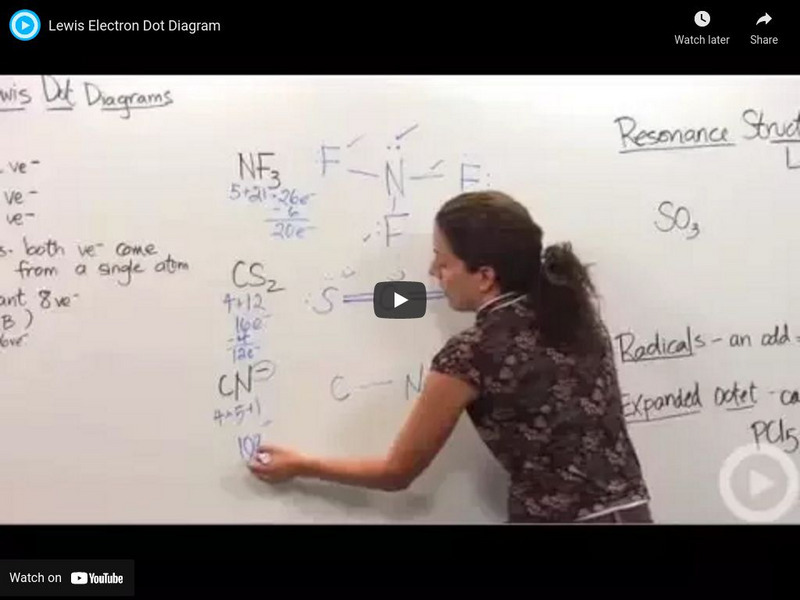Bozeman Science
Ionic Bonding
In this video Paul Andersen explains how ionic solids form when cations and anions are attracted. When atoms lose or gain electrons they form ions. The strength of the attraction between ions is based on the amount of charge and the...
Curated Video
Why does chemistry happen?! Element Stability and the Octet Rule!
Why does chemistry happen?? Why do ions form?? Why do elements bond together?? These are all important questions and the answer comes back to one very important principle in chemistry and that is element stability. Elements are stable...
FuseSchool
What Are Dot and Cross Diagrams - Part 1| Properties of Matter
Learn the basics about how to use dot and cross diagrams to represent covalent bonds. Dot and cross diagrams are simply a straightforward way of drawing the electrons in the orbitals of atoms and compounds. Most of the time, we use dots...
Mazz Media
Ionic and Covalent Bonding
In this video students will come to understand the basic difference between ionic and covalent bonding. Viewers will learn that covalent bonds form between non-metallic atoms that share pairs of electrons and covalent bonds form between...
Curated Video
Covalent Bonding: Sharing Electrons to Form Stable Molecules
This video discusses covalent bonding in chemistry. The presenter starts by explaining that atoms or elements want to have a full outer shell of electrons for stability. They then use examples of how non-metals like fluorine and oxygen...
DoodleScience
Ionic and Covalent Bonding
This video explains all about Ionic and Covalent bonding :) enjoy!
FuseSchool
How Does Water Bond - Covalent Bonds
Learn the basics about the covalent bonding of water, when learning about covalent bonding within properties of matter. Water is made from one oxygen atom and two hydrogens. The oxygen has 6 electrons in its outer shell, but it really...
Massachusetts Institute of Technology
Mit: Blossoms: Plastics and Covalent Chemical Bonds
Interactive video lesson discusses the distribution of electrons in a carbon atom, and then follows with a chemical investigation of plastics.
Brightstorm
Lewis Electron Dot Diagram
A video tutorial on how to draw Lewis Electron Dot Diagrams. [8:37]
Sophia Learning
Sophia: Characteristics of Chemical Bonds
A narrated tutorial explaining the properties and characteristics of different types of chemical bonds. [5:42]
Sophia Learning
Sophia: Characteristics of Chemical Bonds: Lesson 3
This lesson will present the basic properties and characteristics of chemical bonds. It is 3 of 4 in the series titled "Characteristics of Chemical Bonds."
Bozeman Science
Bozeman Science: Ap Chemistry: Covalent Bonding
Paul Andersen explains how covalent bonds for between atoms that are sharing electrons. Atoms that have the same electronegativity create nonpolar covalent bonds. The bond energy and bond length can be determined by graphing the...





